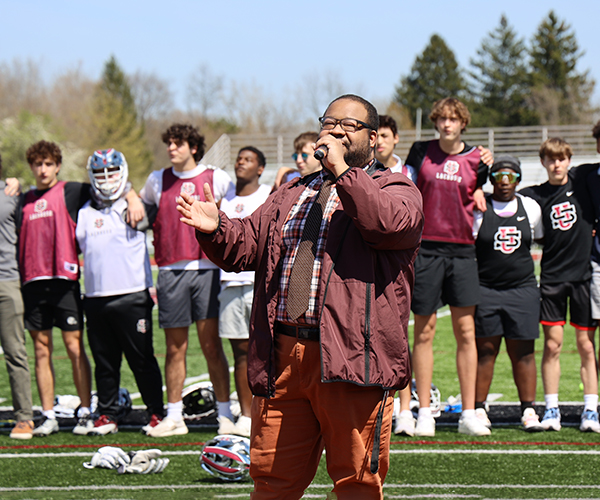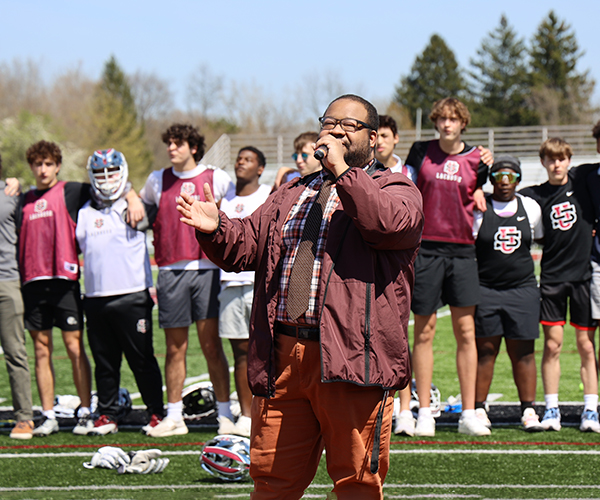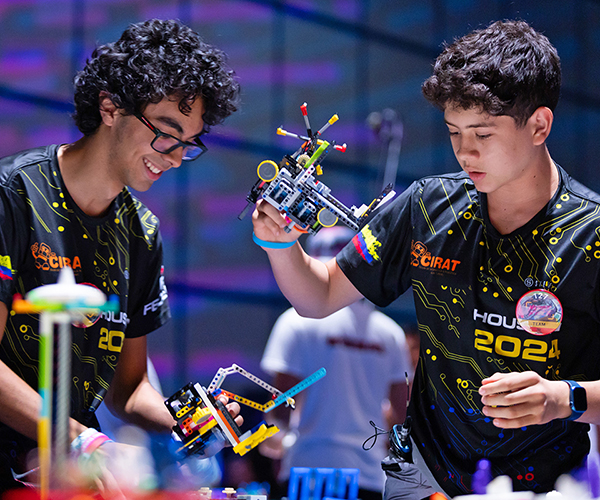For Jennifer Pflaum, finding the right summer camp for her son, Nathan, meant researching camps around Northeast Ohio months before he would even start thinking about sleeping bags, s'mores and starry nights.
Pflaum asked around, called for more information and sent away for brochures in the fall, which is the way to go, says Dr. Christopher Thurber, co-author of "The Summer Camp Handbook." The more research parents do and the earlier they begin looking into camps the better, he says, because a lot of camps fill up as early as January.
After you have selected a few camps, Thurber stresses the importance of finding out more about them by receiving brochures or promotional DVDs or by visiting the camp's Web site. He recommends checking out the American Camp Association Web site, www.acacamps.org, or www.mysummercamps.com.
"Parents want to be looking for an accredited camp by the American Camp Association," Thurber says. "It doesn't mean that the camp is high quality, but they have passed a pretty rigorous set of about 300 standards."
Dennis Elliott, Ohio section executive, American Camp Association, says camps are visited every three years for an audit. Every year the camp has to sign a legal document stating that they are upholding the standards set by the ACA.
"Research is a key factor," he says. "But accreditation still doesn't make it a guarantee."
So you will still need to do some more work. Parents can ask the camp director for recommendations from other parents who sent their child to the camp or attend open houses like Pflaum did to see firsthand the facilities and meet staffers in person.
"As a parent I knew I could drop my kids off and leave them in safe hands," she says.
A lot of parents do not take the time to talk to other parents, but definitely should.
"Find out the nitty-gritty of the camp," says Bob Ditter, a Boston child and family therapist. "See how their kid adjusted, if there were any problems and how it was handled."
Another thing to remember is that this is a collaborative process, says Thurber. Parents should sit with their children and go over the information.
"Kids today need to be a part of the process," Ditter says. "If a kid is adamant about not going, it's probably not going to work."
Let your child know that going to camp is a commitment, Thurber says. Otherwise your child will get the idea that they could come home at any time and that will only make them preoccupied at camp. "If you are that concerned," he says. "Then your child may not be ready."So what kinds
of decisions need to be made? There are many factors to consider when choosing a summer camp. Day or overnight. Northeast Ohio or Colorado. Co-ed or single sex. The key is to try to find the best one based on what your child wants.
Children as young as age 4 or 5 can attend day camps, says Thurber. For overnight camp, children 7 or 8 years old may be ready for the experience.
"Does your child successfully stay away from you?" asks Elliot. If they can spend the night at a friend's house without problems, they can probably handle an overnight camp.
"Some kids are ready at 9 and some are not ready until 12," says Ditter. While you shouldn't pressure your children to go to camp, keep in mind the older they get the harder it will become.
"To be a 13-year-old and go to camp and break into a group for the first time when those kids all know each other is not an easy thing to do," he says.
While it might be easier to send your child to a local camp the first time, Ditter points out "you can buy the geography we don't have in Ohio." Sending your child to a camp by the ocean or mountains will give her the chance to experience something new.
Choosing a co-ed camp can help children identify gender roles. "It is a great opportunity for young people to interact with the other gender," Elliott says.
But there are also single-sex camps for families who don't want the distraction that the opposite sex might present. "It takes away the pressure of being dressed right, getting attention from the opposite sex," says Elliott. "Children can focus on learning."
If your child is really interested in one area, a specialty camp can help build skills, whether they want to learn to dribble or draw. "Humans perform better at things they are focused on," Elliott says.
But if your child just wants to experience different activities, a traditional camp is the best route. In the Pflaum family's case, Hiram House, with activities ranging from archery to arts and crafts, was the right choice. "I chose Hiram House for two main reasons," says Pflaum. "First was the location, and they have tons of activities. It has every camp experience all wrapped into one."
From horseback riding to water-skiing to pottery, now is the time for children to experiment with activities they wouldn't necessarily try at home.
"It is so important to match who your kid is to a camp," Ditter says. If your child is not into sports, but enjoys electronics, it is a good idea to be aware of what a camp offers. "It's their life, it's going to be them at the camp," Ditter says.
And while parents have a say in the decision, it is important to keep in mind what the child wants. "Parents need to remember that their experiences are probably different. Their kids are not them," Ditter says.
While Pflaum attended Hiram House during her childhood, she made sure to look into everything Northeast Ohio had to offer and not force her own experiences on her son. She feels it paid off. Nathan will start his fourth year this summer at Hiram House. His sister, Sadie, 6, will start her second.
While Pflaum may have found the right camp, it took some trial and error along the way. Sadie attended a preschool day camp, but Pflaum felt it wasn't right for her daughter and decided to try something different.
So listen to your instincts, says Thurber. "Parents know their children better than anyone and so they are in the best position to find that camp that is really going to be a positive experience." !



